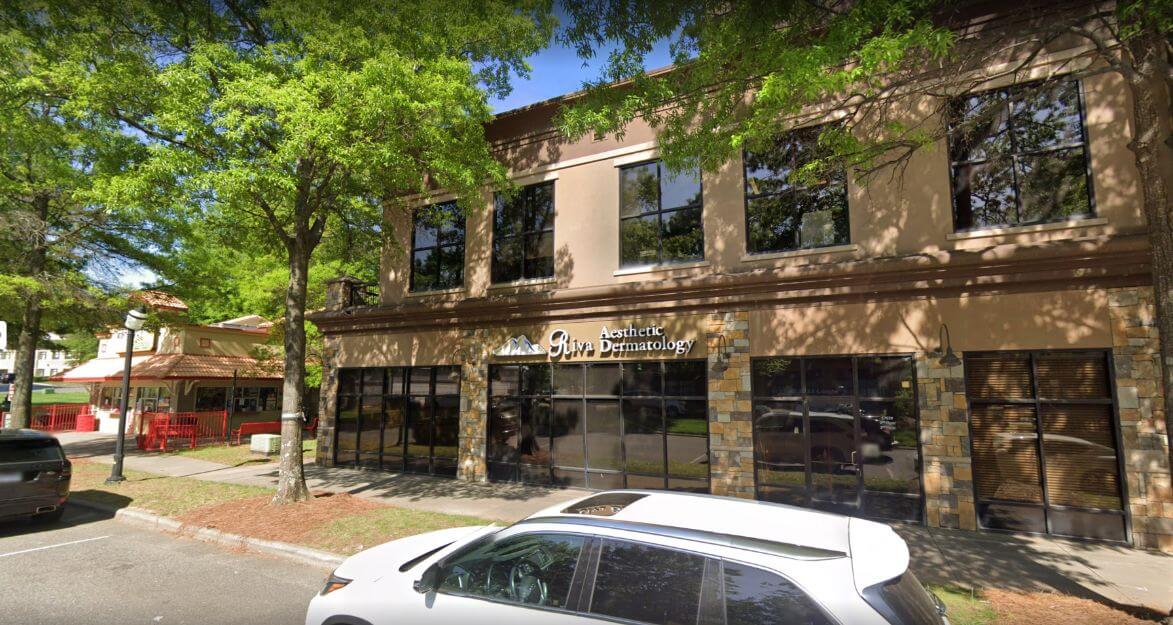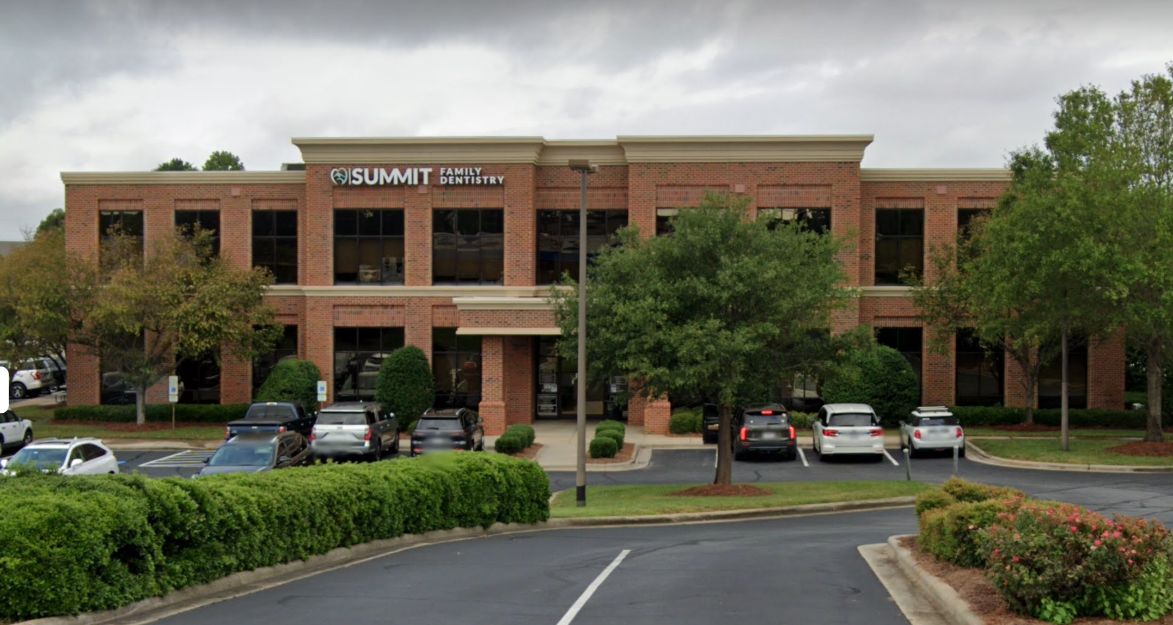Rosacea
Understanding Rosacea
Rosacea can worsen over time if left untreated, leading to persistent redness, thickened skin, and eye irritation. Identifying and avoiding triggers, such as spicy foods, alcohol, and extreme temperatures, can help manage symptoms.
Comprehensive Rosacea Care at Riva Dermatology
Riva Dermatology offers advanced treatments for rosacea, including topical medications, oral antibiotics, and laser therapy. Our dermatologists work with you to develop a personalized treatment plan to control and reduce symptoms.
Examples of Rosacea
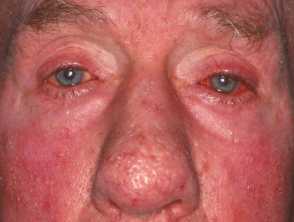
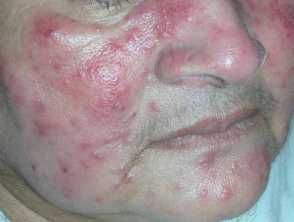
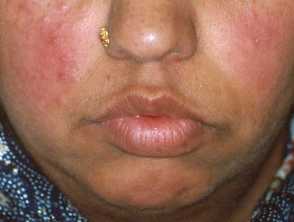
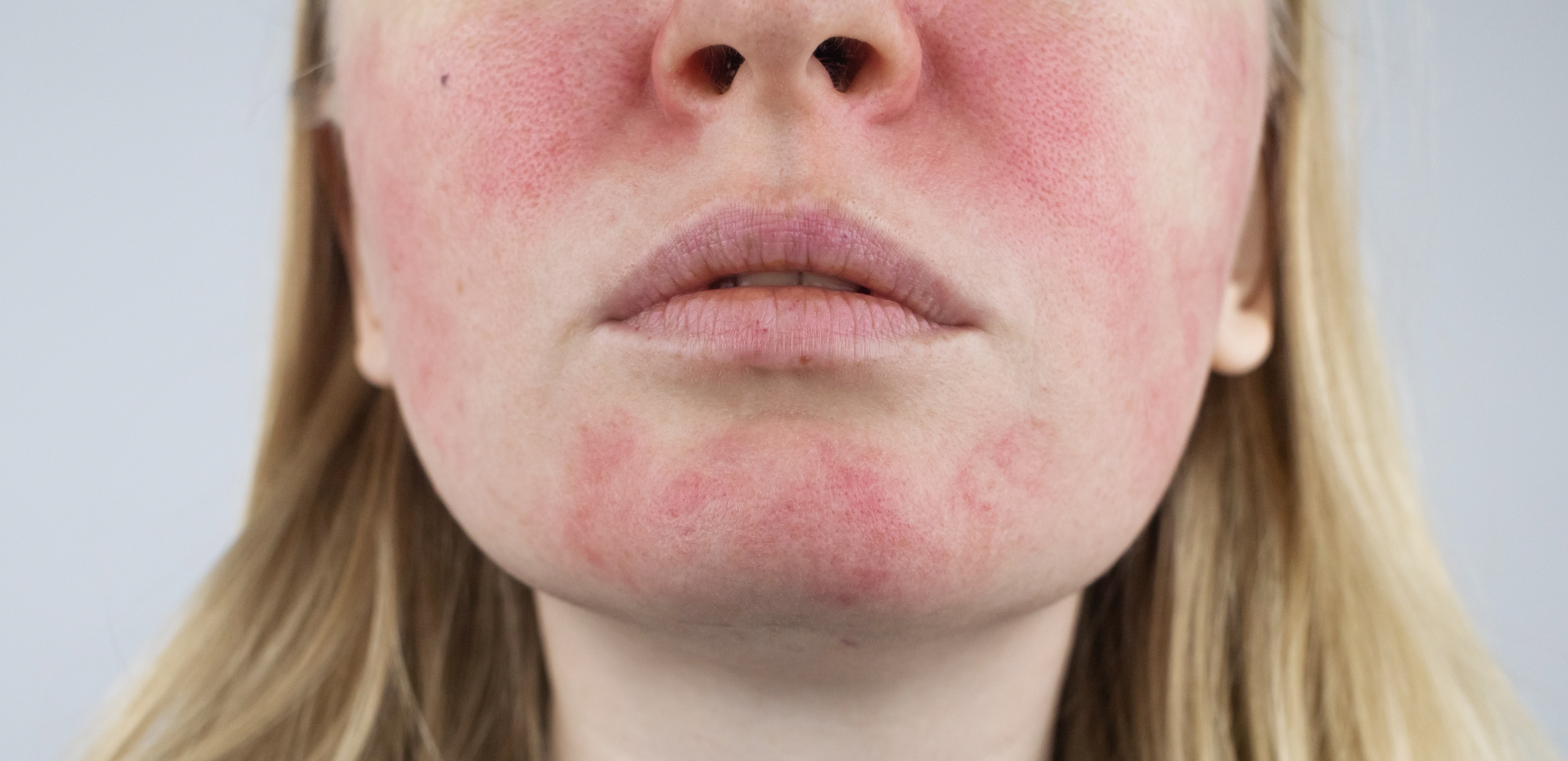
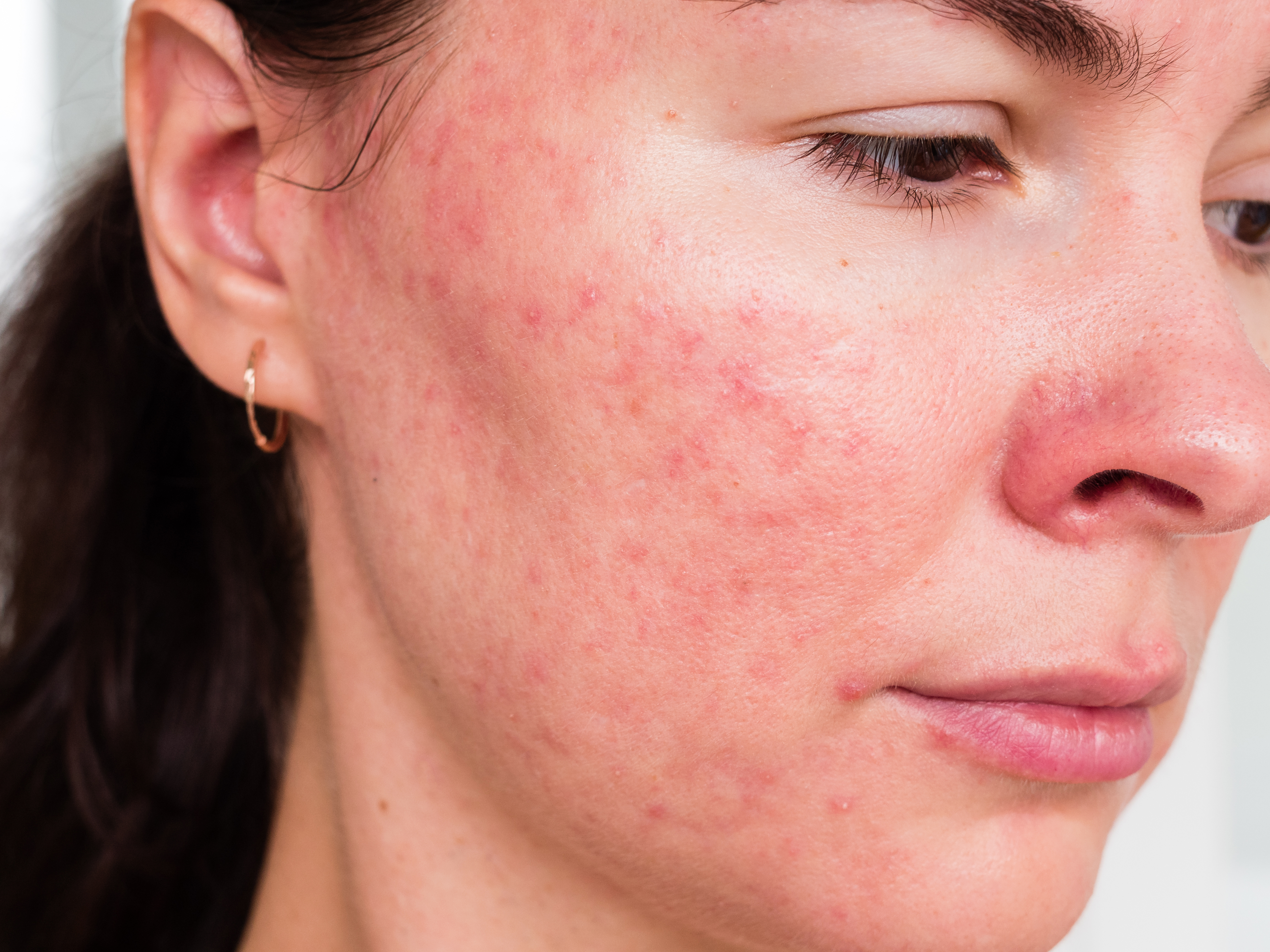
What are the Symptoms of Rosacea?
- Facial redness.
- Acne-like bumps.
- Enlarged nose.
- Facial spider veins.
- Swollen or thickened skin.
- Burning sensation
- Flushing.
Causes of Rosacea
- Combination of genetic, environmental, and vascular factors likely contribute to its development.
- Abnormalities in the face blood vessels.
- Reaction to microscopic mites commonly found on the face.
How to Prevent Rosacea
While there is no guaranteed way to prevent rosacea, certain lifestyle modifications and skincare practices may help reduce the risk of developing symptoms or minimize their severity. Here are some tips to potentially prevent or manage rosacea:
- Sun Protection: Protect your skin from the sun by using a broad-spectrum sunscreen with at least SPF 30.
- Gentle Skincare Routine: Adopt a gentle skincare routine using mild, fragrance-free cleansers and moisturizers.
- Temperature Control: Stay cool in warm weather and protect your face from harsh winds in cold weather.
- Dietary Considerations: While there is no specific "rosacea diet," some individuals find that certain foods can trigger their symptoms. Pay attention to your diet and note any patterns in symptom aggravation.
- Avoid Harsh Skincare Procedures: Steer clear of harsh skincare treatments such as chemical peels or abrasive exfoliants, as they may irritate the skin.
- Use Hypoallergenic Products: Choose hypoallergenic and non-comedogenic skincare and makeup products to reduce the risk of skin irritation.
- Consult a Dermatologist: If you notice persistent redness, flushing, or other symptoms suggestive of rosacea, consult with a dermatologist for a proper diagnosis and personalized treatment plan.
Rosacea FAQs
Common triggers include spicy foods, alcohol, hot beverages, extreme temperatures, stress, and certain skincare products. Identifying and avoiding these triggers can help manage symptoms.
Treatment options include topical and oral medications, laser therapy, and lifestyle modifications. Our dermatologists at Riva Dermatology develop personalized treatment plans to control and reduce symptoms.
No, rosacea is not contagious. It is a chronic inflammatory condition that affects only the individual with the condition.
While there is no cure for rosacea, effective treatments can manage and reduce symptoms. Regular dermatological care can help keep the condition under control.
From our QualDerm Family of Brands: Sunscreen Tips
How to Treat Rosacea
To begin your personalized rosacea treatment plan, schedule an appointment with us now for expert guidance and care.
Featured Products
Check your local office for current stock!
Check your local office for current stock!

